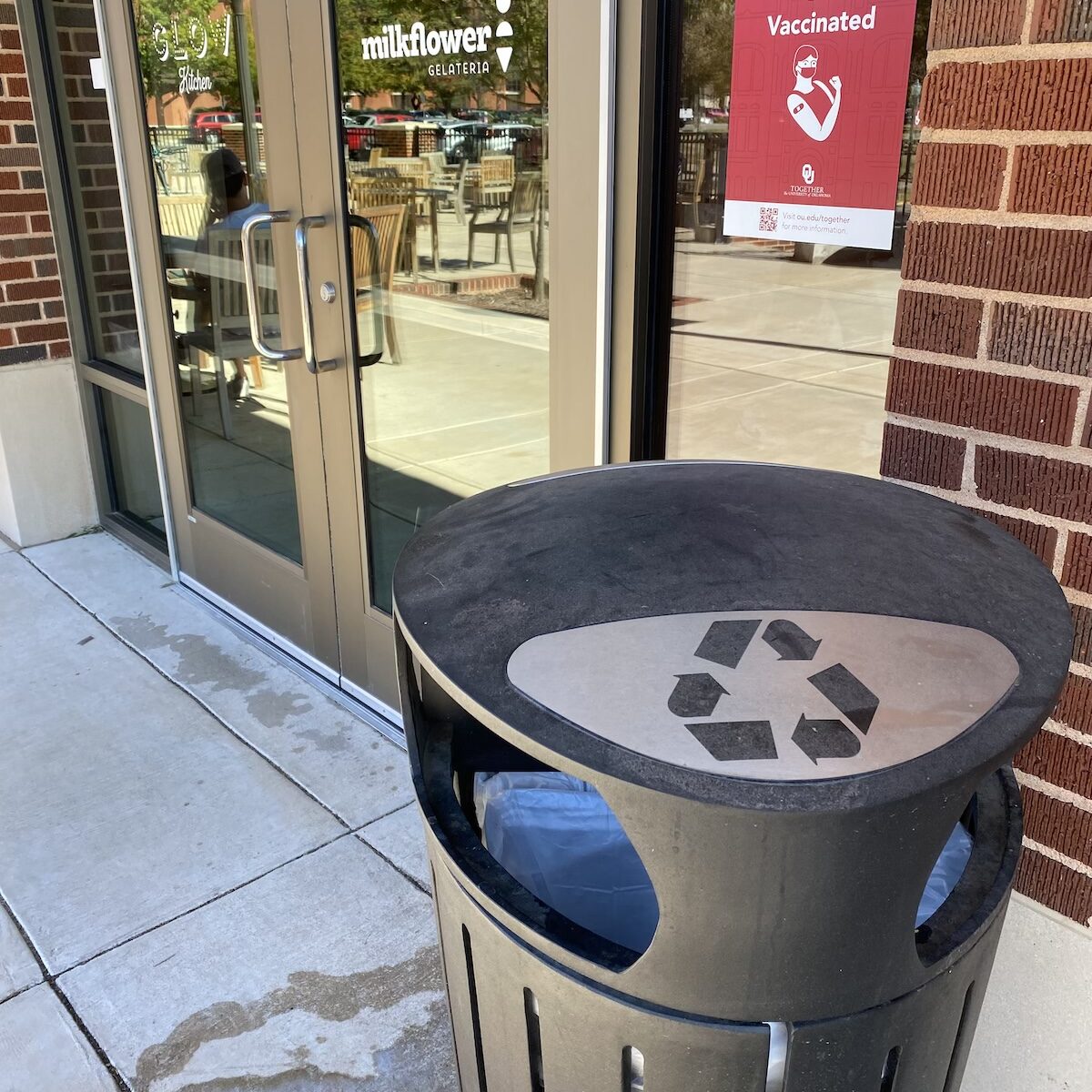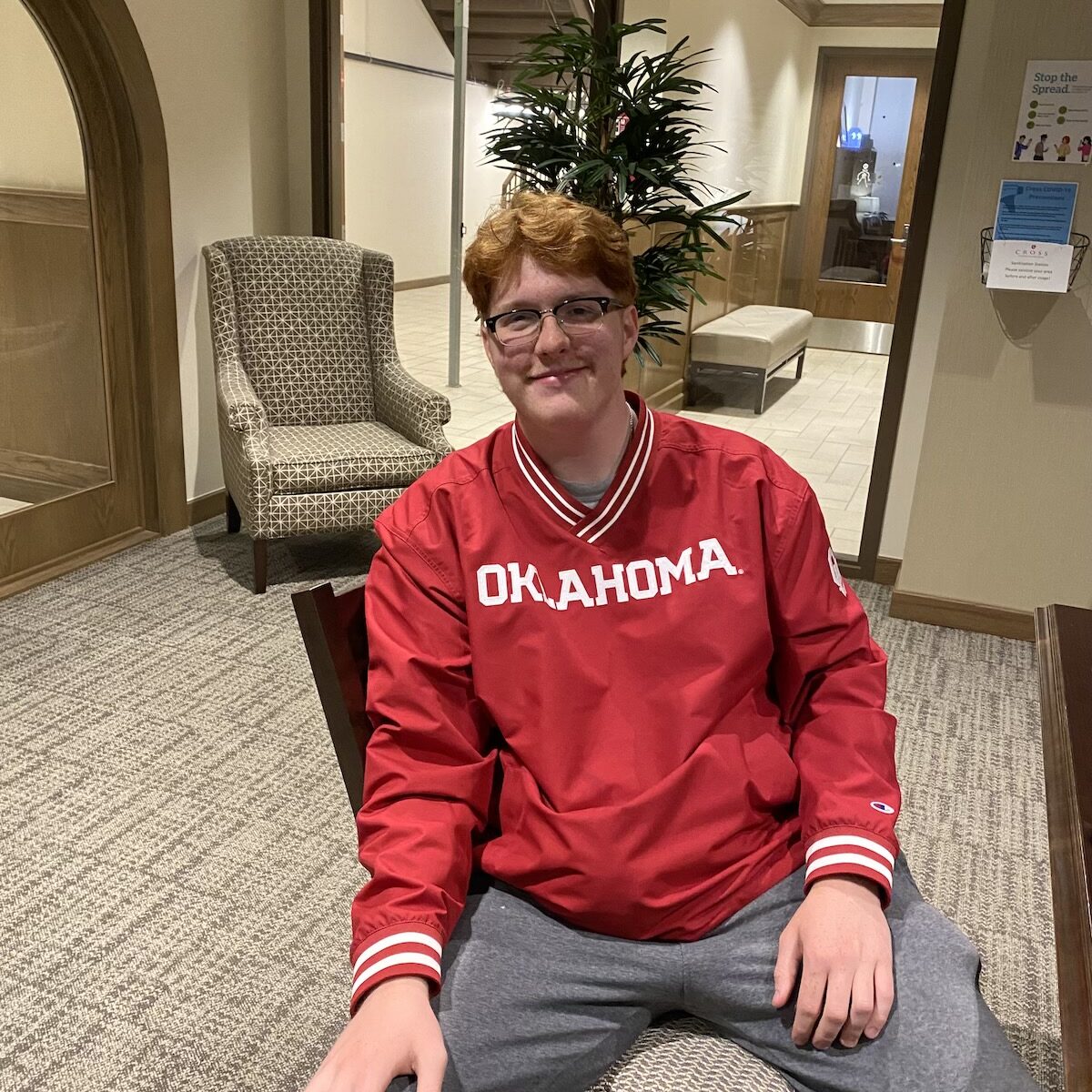As a high schooler, I loved college tours. Everything about college seemed exciting, and I always enjoyed fantasizing about what it would be like. College has, indeed, lived up to my expectations so far (plus a little less sleep and a little more stress). When I walked into the union this morning, there was a big Scholars Day tour event going on. I smiled as I walked by with my backpack and coffee cup, feeling like a real college student.
Tours are not just about seeing campus, however. An important part of picturing yourself on campus is talking to students to hear what their campus life is like. Today I talked to Jaci Walker about what it’s like to be a tour guide here at OU.
Jaci is a sophomore, so this is her first semester as a tour guide. It’s also the most normal semester she has had at OU since last semester had many more pandemic restrictions. I asked her if this made it harder to be a tour guide. Many other sophomores I have talked to seem almost as lost on campus as I was my first week. Jaci, however, does not feel like the COVID year hindered her too much.
“As a freshman, I was surprised by how normal it still felt,” she shared with me. “The university did a good job of providing that environment.”
The main factor that made a difference for Jaci was her involvement.
“Being in things like HSLC and PLC.”
These clubs, along with her sorority, gave her upperclassmen mentors who already knew the ropes of campus. Jaci explained that the people you are around are the most important resource on campus.
Thanks to these experiences, Jaci was able to pass the daunting tour guide test.
“It’s extensive. You just really have to know a lot of things about the university that would be applicable to students interested in the university. It’s mainly short-answer, fill in the blank…those are blanks you’re supposed to be filling in the tour. Some things there may not be one specific answer.”
This test, along with an interview over the summer, makes up the process of being a tour guide. It’s a paid position, and Jaci told me a little about how this makes it different from other campus activities.
“As a college student, a lot of your involvement is choice. But this is a job.”
Being a tour guide has taught her about having balance. While she is spending time on campus with friends, it is a real job, which makes it a different kind of commitment than clubs or activities.
“The job itself is somewhat demanding, just in the sense of the events you help with on top of your regular tour shifts during the week.”
Working with people is another aspect of the job that has helped her grow.
“It’s kind of the same as working in food service or working in retail. Working with people is huge. You’re going to get so many different types of parents, so many different types of students.”
With this, Jaci has learned to adjust her tour depending on her audience. However, across the board, her favorite part is reminiscing about life as a freshman. Jaci uses her experiences as a freshman to help visitors figure out what their time on campus could look like.
It is also fun to connect with people about food.
“When we go to the Caf,” she told me, “if we haven’t sold [them] on anything else, we always say we have the only all-you-can-eat Chick Fil A and the biggest cereal bar in the Big 12.”
(Will we still be able to brag about our cereal bar when we join the SEC??)
As I remember from my campus tours, Jaci ends her tours with her “Why OU?”.
“It is simply for the fact that nowhere else I visited felt like home the way OU did…the size of it was perfect. Also, the people here truly invest in you, in your goals and your dreams and what you want to do.”
It may sound cliche. It may sound like something you would hear on a campus visit anywhere. In my short time on campus, though, I already see how true this is.
The OU family is real, no matter how cliché it may seem. This is exactly what Jaci tells visitors.
“Go where you feel at home, supported, and loved for who you are. Where you can be guided into who you want to be. I want you to know that this is what I have found here [at OU]. I want this for you.”





